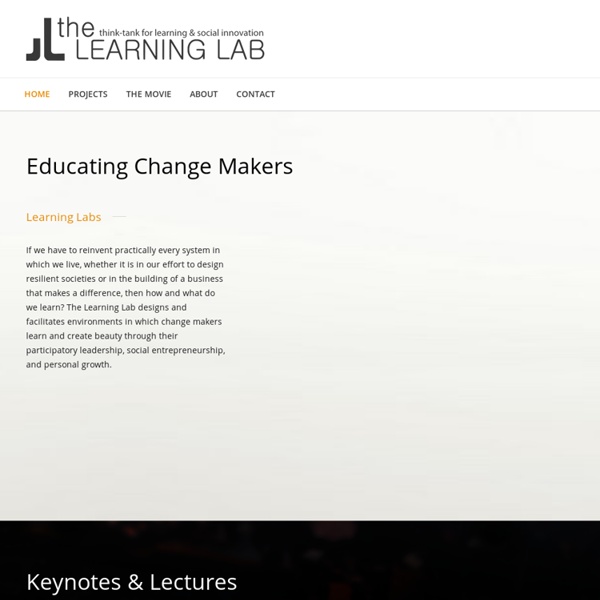



KAOSPilot Centrale Lyon et EMLYON inventent les pédagogies du futur avec leur Learning Lab C’est dans un bâtiment de 400 m2 situé à mi-chemin entre leurs deux campus que Centrale Lyon et EMLYON ont créé leur « Learning Lab », un espace tout entier dédié à l’apprentissage des nouvelles pédagogies. « Nous y formons les enseignants des deux écoles aux nouvelles pédagogies mais nous pouvons également y recevoir des entreprises qui viennent y faire des sessions de créativité », explique l’un des deux créateurs, Jean-Pierre Berthet, également directeur de la stratégie numérique de Centrale Lyon. « Nous expérimentons de nouveaux usages et ce qu’ils impliquent sur la dynamique de groupe », reprend Thierry Picq de l’EMLYON. Un espace interactif et modulable pour travailler ensemble ou en petits groupes Awabot permet à son utilisateur d'interagir avec son environnement presque comme s'il était présent en cours. Mais le clou du « Learning Lab » est sans contexte leur robot Awabot qui permet par exemple à des étudiants malades de continuer à venir en cours. Olivier Rollot (@O_Rollot)
Mycelium Schol Les learning labs, ces salles de cours 3.0 - Enquête sur Educpros À côté des traditionnels amphis ou salles de TD, de nouveaux espaces, plus ouverts et plus modulables, font aujourd'hui leur apparition dans les écoles et les universités. Une dizaine ont vu le jour récemment. Leur finalité : favoriser le développement de pédagogies alternatives, fondées sur l'interactivité et la créativité. Expérimenter et innover : voilà ce qui guide les learning labs. "Nous mettons les équipements technologiques à disposition des enseignants, pour voir s'ils peuvent en faire quelque chose qui ait du sens dans leur pédagogie. Le but est de faire émerger des idées farfelues", s'amuse Benjamin Six, responsable de l'innovation pédagogique de l'Essec. Des espaces modulables… Concrètement, cela passe par des tables et chaises sur roulettes, facilement déplaçables, que l'on peut rapprocher pour mener un travail en petit groupe, puis organiser en cercle pour lancer une discussion collective. … et des équipements high-tech… … demandant des investissements conséquents
New York schools enter the iZone 26 October 2011Last updated at 00:34 By Sean Coughlan BBC News education correspondent Uncertain horizons: New York's economic fortunes are now linked to education After the iPhone and the iPad, the iZone is a different kind of design experiment. It's New York's attempt to reinvent an inner-city school. The iZone project - or Innovation Zone - is challenging state schools in New York City to rip up the rule book. They're being told to find new ways to provide a more individualised education, to change the shape of the school day, explore what technology can offer and even ask whether pupils need to be in school at all. "The challenge we face is nothing less than transforming our schools from assembly-line factories into centres of innovation," said the city's mayor, Michael Bloomberg, who warns that the US school system is falling behind international rivals. If the state schools are not improved, the fear is that the city will be entering the twilight zone rather than the iZone. Global cities
Record numbers of international students 10 March 2011Last updated at 00:19 By Sean Coughlan BBC News education correspondent The number of international students around the world is continuing to rise sharply, with provisional figures from Unesco's Institute for Statistics revealing an annual increase of 12%. The final figures for 2009, to be published in May, are expected to show the number of international students rising to 3.43 million from 2.96 million, according to the Unesco statistics. There are many different measures of overseas students - but this global figure from Unesco shows a huge spike in numbers this decade, rising by more than 75% since 2000. The United States is the biggest destination. But its dominance now depends on the ever-growing number of arrivals from China, overtaking India as the largest single group of overseas students. China has become the firecracker in this market. Chasing quality Sign of the times: The expanding Chinese economy is drawing overseas students to Shanghai Overseas without the travel
Big Picture